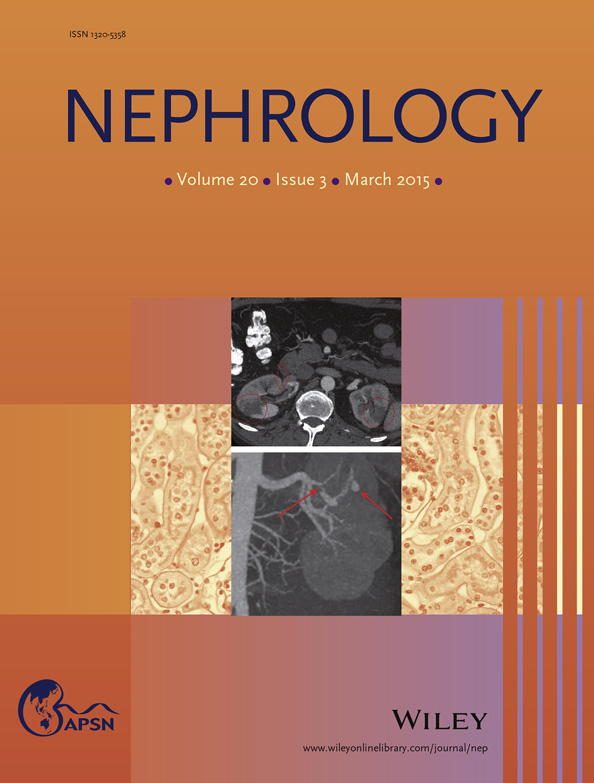Initiating acute dialysis at earlier Acute Kidney Injury Network stage in critically ill patients without traditional indications does not improve outcome: A prospective cohort study
Abstract
Aim
Optimal timing for acute renal replacement therapy (ARRT) initiation in critically ill patients with acute kidney injury (AKI) is unclear. We aimed to evaluate outcomes in patients who initiated ARRT for traditional indications versus those who met Acute Kidney Injury Network (AKIN) criteria without traditional indications.
Methods
This was a single-centre prospective cohort study of medical and surgical intensive care patients with AKI. Traditional indications for ARRT initiation included: serum potassium ≥6.0 mmol/L, serum urea ≥30 mmol/L, arterial pH < 7.25, serum bicarbonate <10 mmol/L, acute pulmonary oedema, acute uraemic encephalopathy or pericarditis. In absence of these indications, ARRT was commenced if patients had (i) AKIN Stage 3 or (ii) AKIN Stage 1 or 2 with ‘compelling’ conditions. Primary outcomes were intensive care unit (ICU) and in-hospital mortality.
Results
ARRT was initiated in 140 patients: traditional indications in 56 (40%); AKIN Stage 3 without traditional indications in 38 (27%); and AKIN Stage 1 or 2 with ‘compelling’ conditions in 46 (33%) patients. Traditional indications at ARRT initiation was associated with increased in-hospital mortality (adjusted odds ratio (95% confidence interval), 6.48 (1.54, 27.29)). In absence of traditional indications, earlier ARRT initiation, as defined by those with AKIN Stage 1 or 2, did not decrease ICU deaths (30.0% vs 18.8%, P = 0.30) or in-hospital mortality (50.0% vs 34.2%, P = 0.15) compared with those who were started on ARRT for AKIN Stage 3.
Conclusions
Presence of traditional indications at ARRT initiation was associated with greater mortality. Initiating dialysis at earlier AKIN stage did not improve survival in patients without traditional indications.




